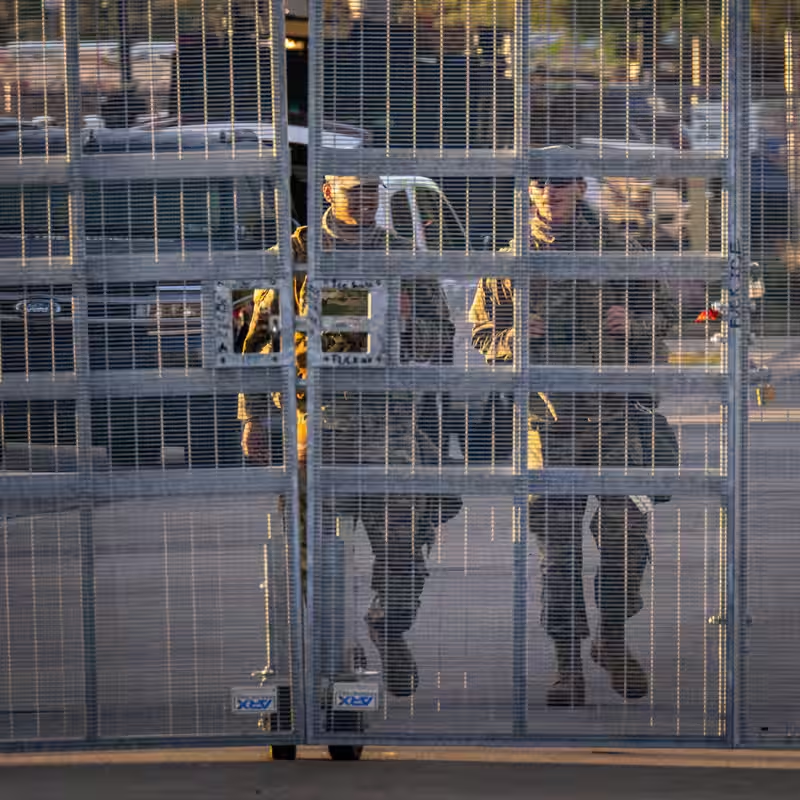Table of Contents
- Federal Control Upheld, Deployment Blocked
- Legal Battle Escalates Over Trump’s Military Move
- Chicago on Edge Amid ICE Protests
- Where Are the Troops Now?
- Broader Implications for Federalism
- Sources
Federal Control Upheld, Deployment Blocked
In a nuanced and closely watched decision, a federal appeals court ruled on Saturday that National Guard troops can remain under President Trump’s federal authority—but they still can’t hit the streets of Chicago.
The U.S. Court of Appeals for the Seventh Circuit issued a one-page, unsigned order that sidestepped the core constitutional question: whether the Trump administration overstepped by federalizing Guard units to assist with immigration enforcement. However, the court preserved a temporary injunction issued just two days earlier by U.S. District Judge April Perry, which blocks any operational deployment of those troops in the Chicago metro area.
Legal Battle Escalates Over Trump’s Military Move
At the heart of the dispute is President Trump’s controversial directive to deploy both Texas and Illinois National Guard units to protect federal immigration agents amid rising tensions in Chicago. Governor JB Pritzker and Illinois Attorney General Kwame Raoul have fiercely opposed the move, calling it a dangerous overreach that undermines state sovereignty.
“This is startling, unbounded, limitless and not in accord with our system of ordered liberty of federalism,” the Illinois AG’s office argued in court filings.
Judge Perry’s 51-page opinion, released Friday, didn’t mince words. She questioned the administration’s motives, suggesting the real goal wasn’t crime reduction or agent safety—but provocation. “Mr. Trump’s decision to bring in the military is likely to lead to civil unrest,” she wrote.
Chicago on Edge Amid ICE Protests
The legal showdown comes as protests intensify outside ICE facilities in Broadview, a Chicago suburb. Demonstrators have gathered daily since early September, waving signs and chanting as federal agents conduct deportation operations.
On Saturday afternoon, a small group was arrested for allegedly crossing designated protest boundaries—a sign of the mounting friction between federal authorities and local communities.
Where Are the Troops Now?
According to U.S. Northern Command, about 200 Texas National Guard members are stationed in Illinois—but not deployed. Another 300 Illinois Guard troops have also been activated. Both groups are reportedly engaged only in “planning and training,” with no operational duties permitted under the current court order.
| Troop Origin | Number Activated | Status |
|---|---|---|
| Texas National Guard | 200 | Federalized, not deployed |
| Illinois National Guard | 300 | Federalized, not deployed |
Broader Implications for Federalism
This case isn’t isolated. A parallel legal fight is unfolding in Portland, Oregon, where the Ninth Circuit Court of Appeals is weighing whether the administration can similarly deploy Guard troops. During last week’s hearing, two of three judges appeared sympathetic to the White House’s argument—raising concerns that rulings could diverge across circuits, potentially setting the stage for a Supreme Court showdown.
Legal experts warn that if presidents can unilaterally federalize National Guard units against a governor’s wishes for domestic law enforcement, it could erode a foundational principle of American federalism.
What’s Next?
The Seventh Circuit has not indicated when it will issue a full ruling. For now, the status quo holds: troops remain in Illinois, but off the streets. The temporary block expires in two weeks—unless extended.




